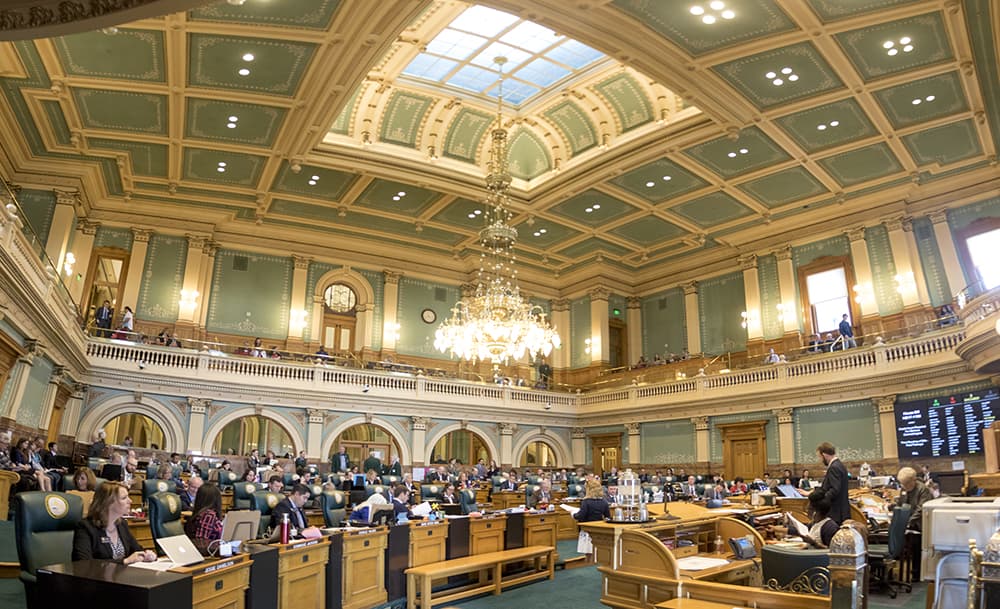
A transportation funding bill that would ask voters to raise taxes to generate $700 million a year for highways, transit and a range of local projects cleared the Colorado House Friday morning with a handful of Republican votes and heads now to the Senate, where it will face another difficult hearing.
The bill is the product of negotiations between leadership in the Democratic-controlled House and the Republican-controlled Senate and is sponsored by Speaker of the House Crisanta Duran, Senate President Kevin Grantham, state Rep. Diane Mitsch Bush and state Sen. Randy Baumgardner, each the chairs of their respective transportation committees.
It asks voters to approve a 0.62 percent sales tax increase that would run for 20 years while reducing vehicle registration fees and late fees that were implemented under the FASTER program. CDOT would get $375 million from the new tax revenue and use that along with $50 million in existing revenue to support a $3.5 billion bond program. The rest of the money would be divided between local communities (70 percent), who could use it on their own projects, and a multimodal commission (30 percent) that would apply money to transit, bike and pedestrian projects.
After learning that CDOT was planning to continue the practice of managed lanes -- toll lanes -- on projects paid for with new tax revenue, the House adopted an amendment that would not allow tolls to be levied on projects funded by the tax.
Democrats beat back a slew of Republican amendments to the bill Thursday, many of them aimed at changing the governance structure related to how the money will be spent.
On the final vote Friday, four Republicans joined 37 Democrats to vote for the bill. They were Reps. Marc Catlin of Montrose, Phil Covarrubias of Brighton, Dan Thurlow of Grand Junction and perhaps most notably Polly Lawrence of Roxborough Park. Lawrence voted against the bill in the transportation and in the finance committee and brought forward many of the failed amendments to change the bill.
Many Republicans objected to the creation of new bureaucracy and the sense that the Denver metro area will benefit disproportionately from a tax levied statewide. But for many House Republicans, it's the whole notion of a new tax that is the real problem.
Rep. Paul Lundeen of Colorado Springs said the legislature is abdicating its responsibility to make tough budgetary decisions by asking voters for more money. Rep. Dave Williams, also of Colorado Springs, said lawmakers are likely to be facing the same hard choices next year.
"What happens when this proposal fails at the ballot box in November?" he asked. "What will we say to our constituents when their roads are still in shambles and we didn't do our job? We don't need to ask our constituents to write a blank check."
But Mitsch Bush said the state needs a new revenue source. The money that was being used until December to pay off the last major bond program, the one that built the T-Rex expansion on I-25, has already been reappropriated to ongoing maintenance.
"This should not be a Democratic or Republican issue," Duran said. "Potholes do not have a D or an R next to their name. Traffic congestion does not have a D or an R next to it. ... It is not perfect, but it is a solution to a problem that we all agree that we have. Let the people decide if they want to invest just a little bit more into transportation. Let the people decide if they are okay with the status quo."













